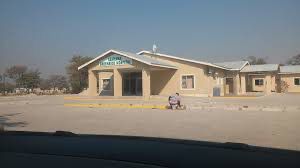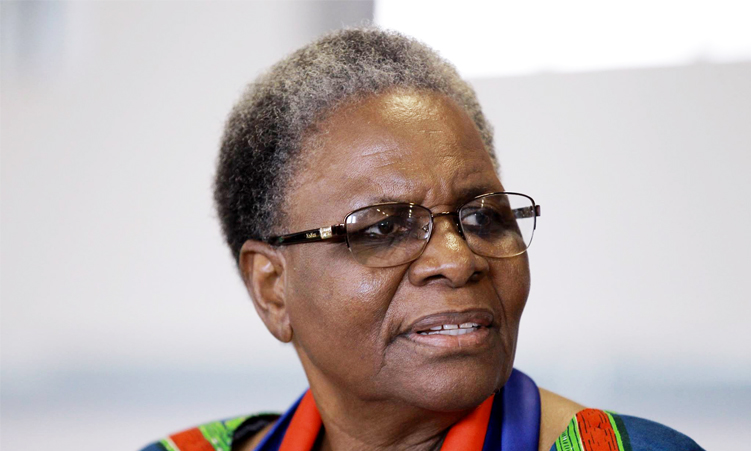IF President Hifikepunye Pohamba’s ‘gift’ of an additional half-day holiday for civil servants was intended to promote massive attendance at public rallies for Africa Day last Friday, then it did not meet the desired goal.
The major rally, held at the Sam Nujoma Stadium in Katutura, which was addressed by the President himself, was certainly not attended en masse by the civil service. Although some said the attendance was better at Africa Day than it had been at various other commemorative functions recently, the gesture was still a costly one to the country.While there hasn’t been a massive outcry at the additional half-day granted only to civil servants to, in the words of the Prime Minister, ‘prepare’ themselves for Africa Day, workers in the private sector are less than happy and feel that their tax dollars have been used to underwrite an exercise in which they did not benefit.Although neither the President, nor the Prime Minister, have responded to media criticisms about adding an extra half-day holiday for a workforce which already benefits from generous provisions in the Labour Code in terms of annual leave allotments, as well as sick leave, and the many national holidays in Namibia, we trust that they acknowledge, even privately, that this was an ill-advised move in general terms.It served no other goal than being a misplaced generous gesture which benefited some and not others and disadvantaged the economy of the country, and hopefully will not be repeated except under the most exceptional circumstances.Consolidating The Gains of Africa AFRICA Day is an occasion for celebrating our continent, and the achievements that have been recorded, especially in rolling back slavery and colonialism and taking control of our own destiny.We do need to take joy in the many positive things that have happened on our continent, not least of all the shift to democracy in many countries, but it would be foolish if we failed to take stock of the failures too.Former Prime Minister Hage Geingob, in a speech on this occasion at the coast, reiterated that he was a “firm believer that Africa is on the march” and he did not doubt that this continent would play an increasingly significant role in the 21st century.We believe that there is great scope for Africa to truly come into its own in the hopefully not-too-distant future, but it is important that we set our goals to doing precisely this.In doing so, we should also not play praise-singer to those African countries that are pulling us back.Africa is free now, at least from foreign domination, but it has not yet completely shed the shackles that have bound certain countries to oppressive governments on the continent, and it would be foolish for us to pretend otherwise.Although Geingob clearly spelled out the need for Africa to prioritise economic emancipation, the need to address the scourge of HIV and the importance of tackling corruption on the continent, we don’t agree with his either/or sentiment that “it is better to have our freedom and mismanage our affairs, with the choice to become reactionary, than to be colonised and oppressed”.Of course it is better to have our freedom from colonisation and oppression.But equally, we should ensure that freedom is used to manage our affairs properly, and ensure that the oppression of our people be a thing of the past, no matter who the oppressor is.It is in this vein that we cannot take any joy from the situation in Darfur and Zimbabwe, to mention just two incidents on our continent which the African Union needs to prioritise for remedial action for he sake of the suffering people there.Africa will truly come into its own when the continent can reach the point that wars and famine and undemocratic regimes are all toppled by the combined might of a united people and like-minded governments who bear full responsibility for the wellbeing of all.Although some said the attendance was better at Africa Day than it had been at various other commemorative functions recently, the gesture was still a costly one to the country.While there hasn’t been a massive outcry at the additional half-day granted only to civil servants to, in the words of the Prime Minister, ‘prepare’ themselves for Africa Day, workers in the private sector are less than happy and feel that their tax dollars have been used to underwrite an exercise in which they did not benefit.Although neither the President, nor the Prime Minister, have responded to media criticisms about adding an extra half-day holiday for a workforce which already benefits from generous provisions in the Labour Code in terms of annual leave allotments, as well as sick leave, and the many national holidays in Namibia, we trust that they acknowledge, even privately, that this was an ill-advised move in general terms.It served no other goal than being a misplaced generous gesture which benefited some and not others and disadvantaged the economy of the country, and hopefully will not be repeated except under the most exceptional circumstances.Consolidating The Gains of Africa AFRICA Day is an occasion for celebrating our continent, and the achievements that have been recorded, especially in rolling back slavery and colonialism and taking control of our own destiny.We do need to take joy in the many positive things that have happened on our continent, not least of all the shift to democracy in many countries, but it would be foolish if we failed to take stock of the failures too.Former Prime Minister Hage Geingob, in a speech on this occasion at the coast, reiterated that he was a “firm believer that Africa is on the march” and he did not doubt that this continent would play an increasingly significant role in the 21st century.We believe that there is great scope for Africa to truly come into its own in the hopefully not-too-distant future, but it is important that we set our goals to doing precisely this.In doing so, we should also not play praise-singer to those African countries that are pulling us back.Africa is free now, at least from foreign domination, but it has not yet completely shed the shackles that have bound certain countries to oppressive governments on the continent, and it would be foolish for us to pretend otherwise.Although Geingob clearly spelled out the need for Africa to prioritise economic emancipation, the need to address the scourge of HIV and the importance of tackling corruption on the continent, we don’t agree with his either/or sentiment that “it is better to have our freedom and mismanage our affairs, with the choice to become reactionary, than to be colonised and oppressed”.Of course it is better to have our freedom from colonisation and oppression.But equally, we should ensure that freedom is used to manage our affairs properly, and ensure that the oppression of our people be a thing of the past, no matter who the oppressor is.It is in this vein that we cannot take any joy from the situation in Darfur and Zimbabwe, to mention just two incidents on our continent which the African Union needs to prioritise for remedial action for he sake of the suffering people there.Africa will truly come into its own when the continent can reach the point that wars and famine and undemocratic regimes are all toppled by the combined might of a united people and like-minded governments who bear full responsibility for the wellbeing of all.
Stay informed with The Namibian – your source for credible journalism. Get in-depth reporting and opinions for
only N$85 a month. Invest in journalism, invest in democracy –
Subscribe Now!






